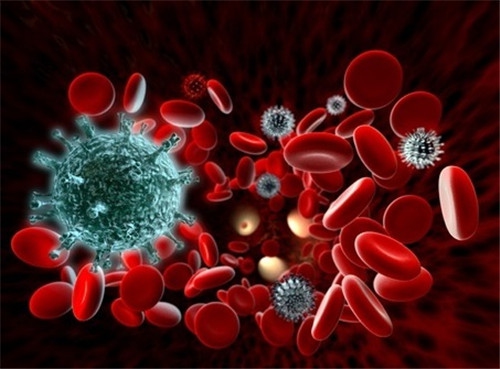Vitamin A is a powerful antioxidant and is among the most important nutrients. Why is vitamin A good for you? It is fat-soluble and helps reduce inflammation by limiting free radical damage. Like other antioxidants, vitamin A plays a role in maintaining healthy skin, building strong bones, supporting immune function, and facilitating cell differentiation.
What it implies is that vitamin A deficiency will lead to several health problems, including night blindness, brittle nails, itching in the eyes, keratinization of the skin, sexual disorders, dull hair, and precancerous changes in your body tissues. Insomnia, fatigue, and depression are some other common issues related to vitamin A deficiency.
5 Amazing Vitamin A Benefits
Promote Eye Health
You need to take enough vitamin A to ensure optimal functioning of your eyes. This fat-soluble vitamin can keep your eyes healthy by stop progressive deterioration of retina and maintaining your eyesight. Vitamin A is an essential part of the rhodopsin molecule that activates when light enters the retina. The molecule sends a signal to your brain and makes it possible for you to view things. It also helps prevent night blindness and reduces the risks of macular degeneration and cataracts.
Support Cell Growth and Healthy Skin
Your body needs vitamin A to keep your skin healthy and accelerate healing. Vitamin A supports skin cells and forms glycoproteins which help to form soft tissues. Some studies have also found that vitamin A can prevent acne, reduce wrinkles and fine lines by producing collagen, and improve overall skin health. It also contributes to healthy hair.
Support the Immune and Inflammatory Systems
Your immune system tries to protect you from getting affected by the micro-organisms (like certain bacteria) found in your digestive tract, and vitamin A provides your immune and inflammatory systems to put up a fight against these organisms. Your immune system releases antibodies to protect you against microorganisms, whereas your inflammatory systems prevent these bacteria from overreacting. Vitamin A helps facilitate both these processes. You need to take enough vitamin A to ensure that your immune system doesn't overreact to certain organisms. This can help lower the risk of certain types of food allergies, infection, as well as poor response to vaccination, etc.
Prevent Cancer
One of the biggest vitamin A benefits is that it controls malignant cells in your body and really helps in preventing several forms of cancer. It basically contains retinoic acid that has proven beneficial in cancer treatment and protects you from breast, prostate, lung, oral, bladder, and skin cancer. However, it is important to point out that excessive retinoic acid intake may lead to cytotoxicity. So, be sure to use it in your daily diet but in moderation to prevent and suppress cancer progression.
Ensure Muscle Growth, Strong Bones and Teeth
Among many vitamin A benefits is its ability to strengthen your teeth and bones. It plays a role in producing dentin, which is actually a hard layer below the surface of your teeth, and protects your teeth. It also has a role to play in normal bone metabolism and ensures your bones stay healthy and retain their shape. Vitamin A is important for growing teens and children because it promotes proper muscle growth and prevents issues such as muscular dystrophy.
Other Benefits
Vitamin A is essential in promoting proper reproductive processes in both men and women. It also ensures proper production of sperm in men. In fact, many researchers are now conducting extensive research in the field of genetics to find out more about the role of vitamin A in regulating certain genetic events.
Important Sources of Vitamin A
Physicians as well as nutritionists recommend that it is best to get vitamin A from natural sources such as food. Here are some of the finest sources of vitamin A:
Carrots: 21, 384 IU/1 cup raw sliced (over 100% DV) | Kale: 6,693 IU/1 cup chopped (over 100% DV) |
Beef liver: 14,363IU/3 ounces (almost 3x the DV) | Sweet Potato: 18,443IU/1 whole (more than 100% DV) |
Spinach: 2,813 IU/1 cup raw (56% DV) | Romaine Lettuce: 4,094 IU/1 cup shredded (82% DV) |
Apricots: 674 IU/1 fruit (13% DV) | Broccoli: 567 IU/1 cup raw (11% DV) |
Butter: 355 IU/1 tbsp. (7% DV) | Eggs: 302 IU/1 large egg (6% DV) |
Winter Squash: 514 IU/1 cup (10% DV) | Cantaloupe Melon: 2, 334 IU/1 medium wedge (47% DV) |
Sweet Red Peppers: 4,665 IU/1 cup chopped (93% DV) | Tuna Fish: 2,142 IU/3 ounce filet (43% DV) |
Mango: 1,785 IU/1 cup (36% DV) | Papaya: 1531UI/1 cup (31% DV) |
Intake Recommendations of Vitamin A
Since your diet is often enough to fulfill your vitamin A requirements, you don't have to switch to supplements if you have a vitamin A deficiency. However, you may need supplements if you have a digestive disorder or your diet is not balanced enough to provide you with enough vitamin A. Whether you're taking supplements or relying on food, you should not exceed the recommended dietary allowance (RDA).
| Children |
|
| Adult Females |
|
| Adult Males | 900mcg/day |
Warning
As mentioned above, you don't need much of this essential vitamin, but you should maintain a regular supply of what is required for better health. Vitamin A overdose can cause symptoms such as loss of appetite, blurred vision, jaundice, irritability, nausea, and hair loss. An enlarged liver/spleen and growth retardation are other severe symptoms. So never overload on supplements and finally you will witness side effects instead of noticing any vitamin A benefits.









View All Comments /Add Comment